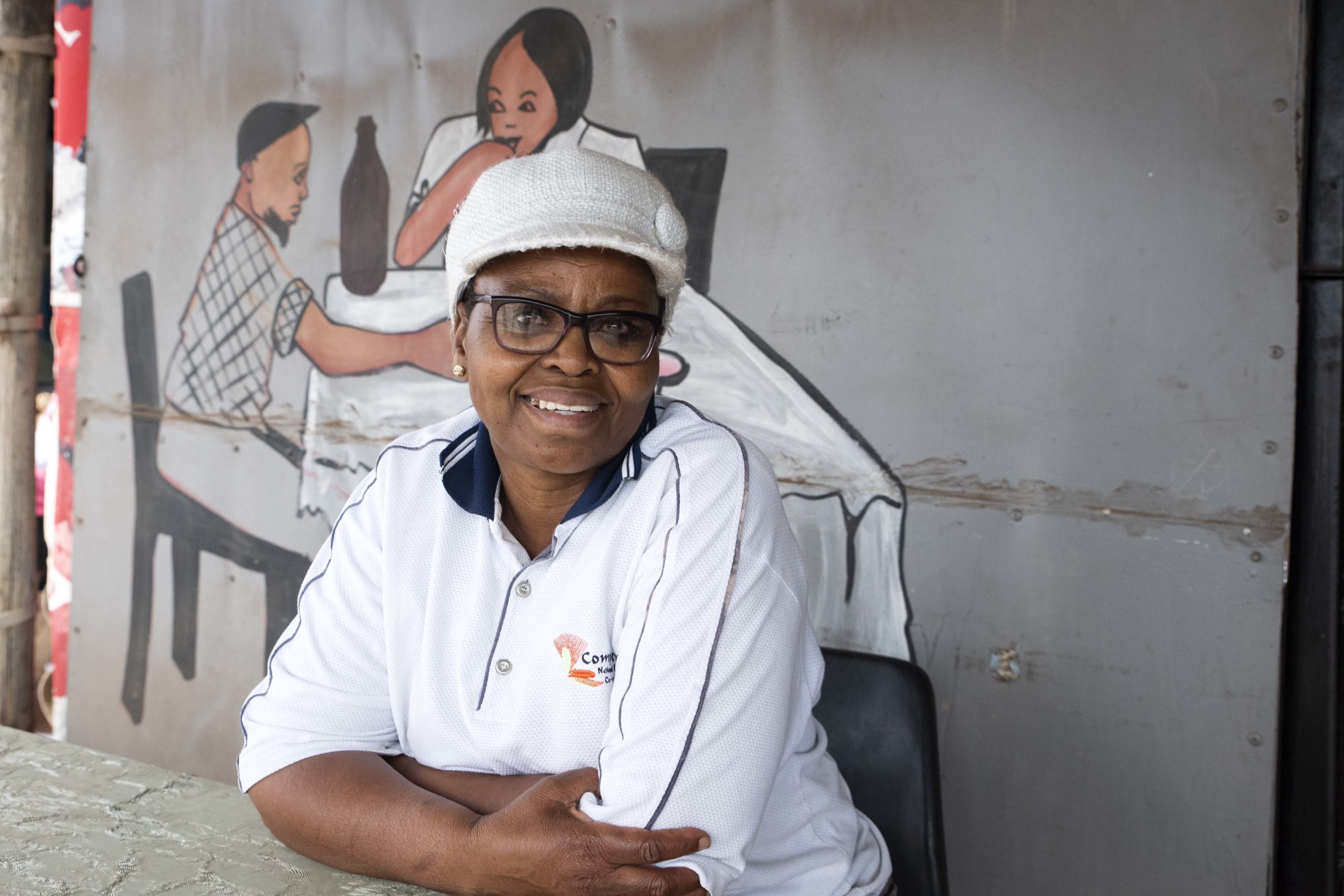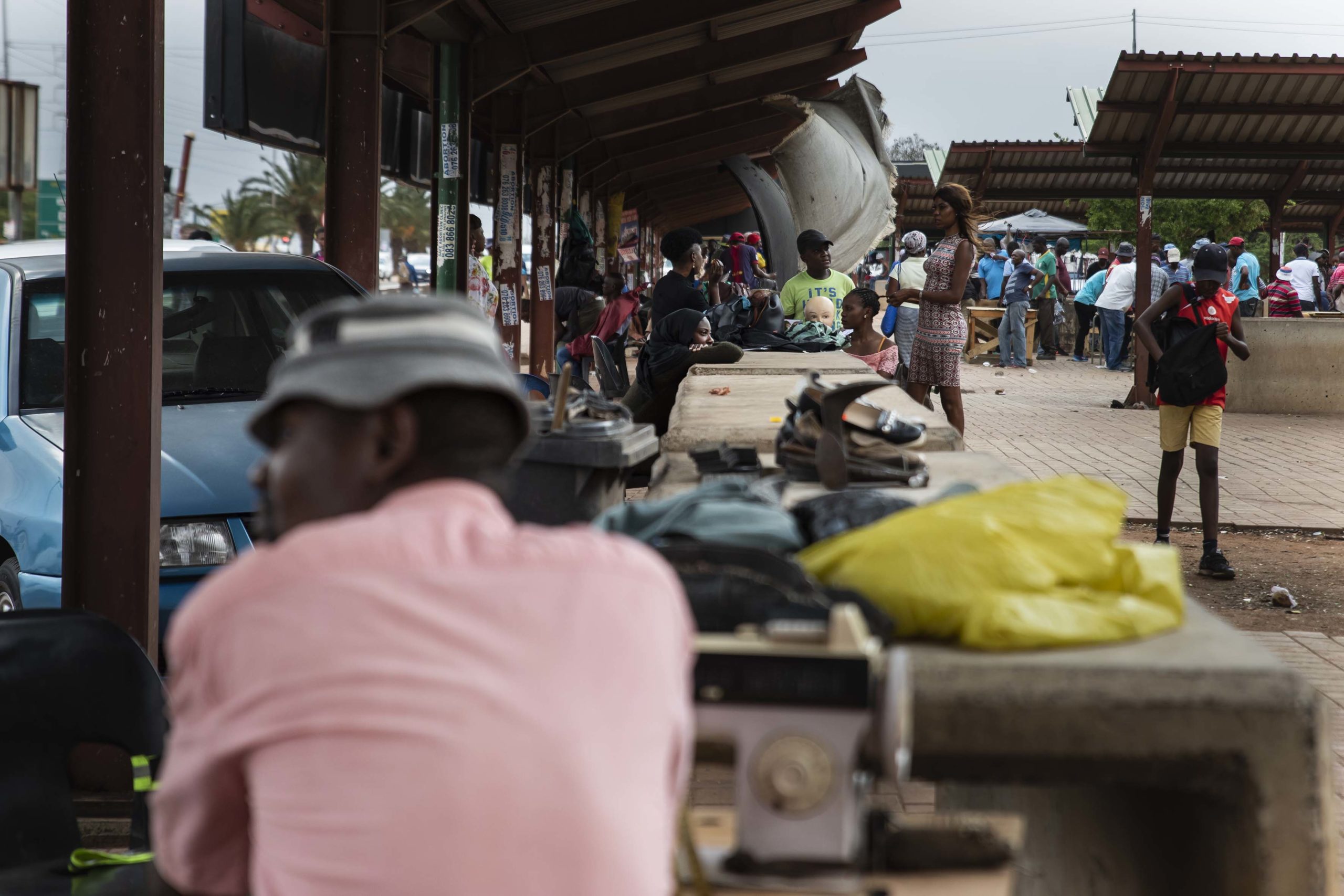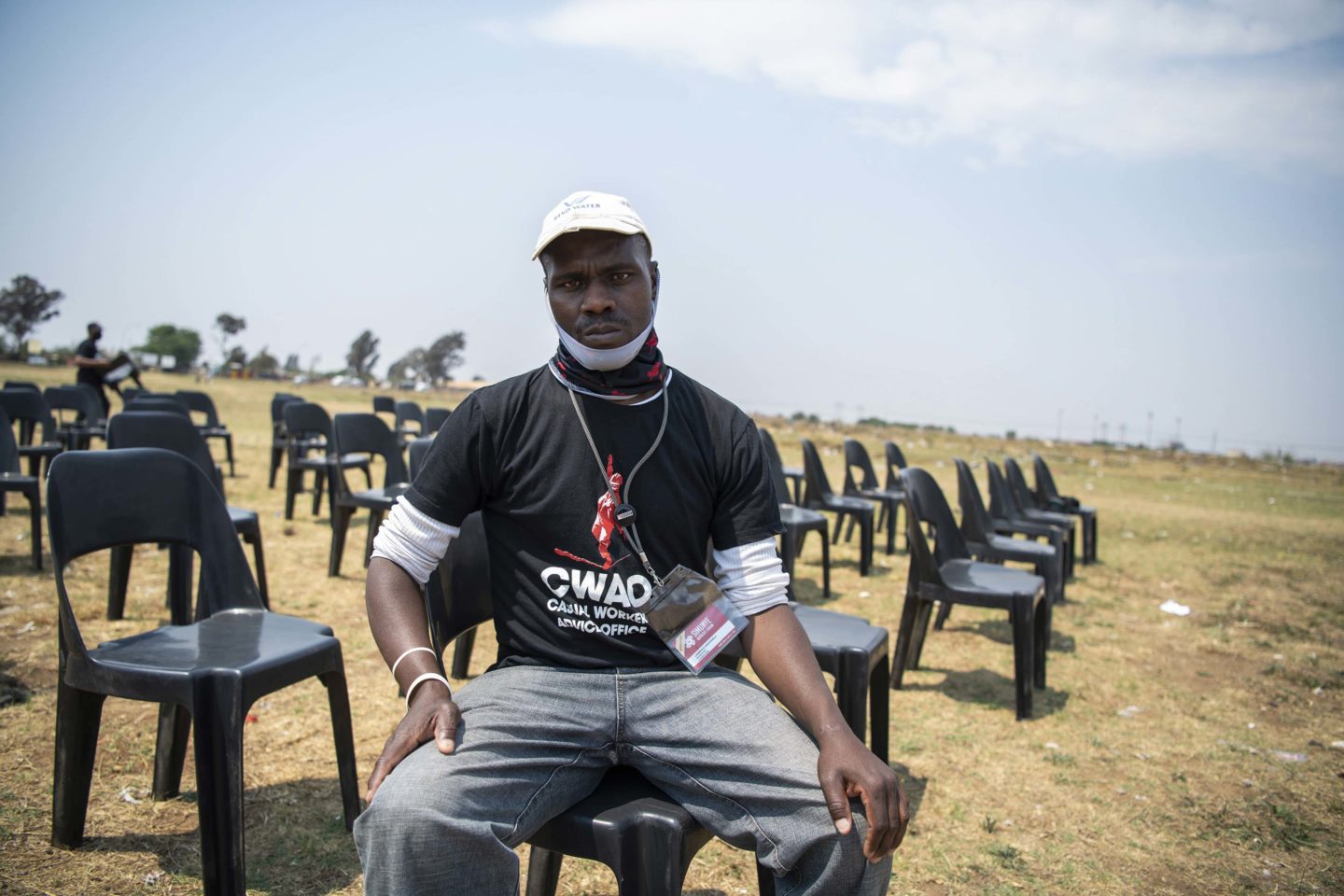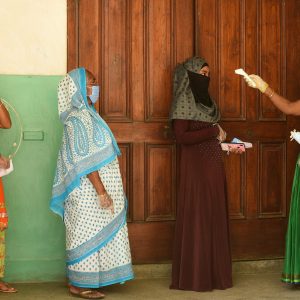Angry residents say voting has become meaningless
As South Africa gears up for the local government elections on 1 November, disgruntled voters in Tshwane and Ekurhuleni say they have little reason to cast their ballots.
Author:
4 October 2021

It has been nearly two years since devastating flash floods washed away homes in Seven Seven, a section of the Buffer Lake 77 shack settlement along the Moretele River in Mamelodi, Pretoria.
Some residents took refuge at a local church for months, while others tried to rebuild their homes. Although a few people were relocated to areas such as Mooikloof, many still live in uncertainty on this floodplain, waiting for the provincial government to keep its long-standing promises for better housing elsewhere.
On the campaign trail in Mamelodi over the past two weekends, members of some political parties were snubbed because they wanted to politicise the floods. “They wanted to campaign with it, [saying] ‘the ANC didn’t do this and that, but we will’,” said resident Ofentse Matibela, 46. “Why should we believe them now? Which politician is not corrupt?

“Why do we even need these people? They go to courts all the time to fight communities. The reason they have bodyguards and guns is because they are killing each other and doing nothing for the masses. These are the same people who were put in those positions by the masses. They are rotten and that is an understatement. [They are] busy stealing money and being corrupt at our expense.”
Matibela said politicians find the time and money to reach out to residents only when elections are due. “When they want to give out free shirts, they will make it to the gogos in the mud houses. They always bring free things instead of solutions. They can’t even do that when it comes to information about vaccines, but for free shirts they will even reach the outskirts of the township,” he said.
Voters no longer want to listen to politicians’ empty promises and will not vote for them again, says Matibela. “You are able to make promises when it’s time to get votes, but when it’s time to deliver you disappear? If you are not going to hold your end of the bargain, we will meet at the polls.”
Waiting in vain
People first started settling in Seven Seven in August 2015, erecting their shacks and creating a habitable environment without government help. They have no water or electricity and are battling hunger and escalating unemployment triggered by retrenchments and job losses during the Covid-19 pandemic and lockdowns.
“When the government sees these things [people organising themselves], they feel they have been rendered useless,” said Matibela. “We allowed them to come in and help us, but all they did was damage and make empty promises and we are still here. You are hit by a pandemic, but you are stuck in a squatter camp with no job, living on empty promises.
“Why would I allow a party that has failed me for 27 years to get into power again? We are dealing with liars who are lying to us each time and telling us to vote for a better life. Where is the better life here?”

After the floods hit Mamelodi in December 2019, Gauteng premier David Makura visited the area and promised those who had been displaced that they would be relocated. But Matibela said he is still waiting for a permanent stand elsewhere to be allocated to him. With the rainy season coming, residents like him are living in fear of more floods.
“There are [two] months left until December, and now people will spend Christmas here again [hoping] that it doesn’t rain again. You can’t make plans, you can’t buy furniture. You are waiting to be relocated, but there is nothing you can do without knowing what they are planning for,” he said.
“These people [politicians] work for us. We put them there, but we fail to understand that we have the power. The same way they fetched me to say we must convince the masses to stop vandalising, we are going to go to the masses and say they must do something that benefits them rather than expecting so much from the government. We will spend December here and we will share the little that we have, as we always do.”
No reason to vote
Mary Choma, chairperson of an informal traders group based in Mamelodi, says the empty promises lead to tension between leaders like her and the traders on the ground.
“As leaders, we are the ones who are exploited most. [Politicians] make empty promises and we fight with the traders. They tell the traders that they are doing one, two, three and then they don’t, but then they turn around and tell them to ask us,” she said.
Choma has voted previously but doesn’t want to come 1 November. “I don’t see politicians doing anything for me or for informal traders. I don’t see any progress or assistance. Instead of helping us, they exploit and harass us. They are calling and [texting] us, but when we need them, they don’t help us. They just help their pockets. The poorest are the poorest because of them. There is no improvement.”
Related article:
In Tembisa in Ekurhuleni, resident Gabisile Nyathi, 28, doubts that she will vote. “As you can see, the youth don’t have jobs. I don’t see the need to vote because there is nothing they are doing for us. We are just sitting in the location. They only employ each other and not us when jobs [become available],” she said.
“I fear my children will experience the same thing. I am still unemployed. Things don’t change, nothing changes. I saw the ANC and EFF [campaigning]. The ANC was going house to house asking what our complaints are. Even when we give them answers, we always repeat the same things and nothing changes,” she said.
Jobs for pals
Khanyisile Mashele, 30, who lives in Mayfield in Ekurhuleni with her three children, has registered to vote. “If I don’t [vote], the same things will continue to happen. The corruption and poor service delivery will continue.
“We are fighting a lot of things in Mayfield. At extension 5, the roads are always full of sewerage. When there are jobs, we just see people hired and we are not told as people who live here [what is going on],” she said.
Daveyton resident Lawrence Madonsela, 36, was formerly employed by the Ekurhuleni municipality’s Lungile Mtshali Development Plan Project, a job creation programme to clean streets, drains, cemeteries, parks and municipal property. He is among a large group of workers who were hired in 2014 and unfairly dismissed in 2015.

Madonsela, who has not registered to vote, says the group’s members who do vote will not support the ANC.
“It’s better to vote for another party because we need to remove this Apartheid National Corruption,” he said, referring to his name for the ANC. “They have made us suffer and they are not taking care of us.
“We are not receiving the R350 [social relief of distress grant] because the Department of Labour says we are still registered as workers when we are not. We are tired of empty promises. As you speak to me, my name appears as a director of a company that sews clothing for the [municipality] when I am sitting unemployed,” said Madonsela.


